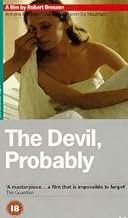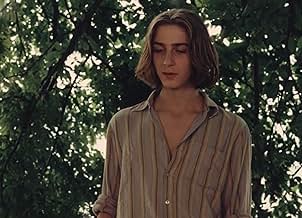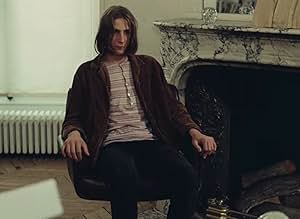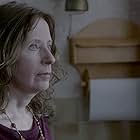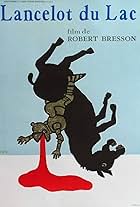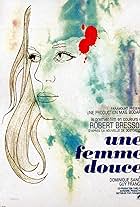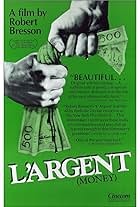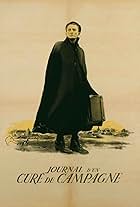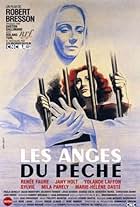IMDb RATING
7.1/10
4.9K
YOUR RATING
Charles drifts through politics, religion and psychoanalysis, rejecting them all. Once he realises the depth of his disgust with the moral and physical decline of the society he lives in, he... Read allCharles drifts through politics, religion and psychoanalysis, rejecting them all. Once he realises the depth of his disgust with the moral and physical decline of the society he lives in, he decides that suicide is the only option...Charles drifts through politics, religion and psychoanalysis, rejecting them all. Once he realises the depth of his disgust with the moral and physical decline of the society he lives in, he decides that suicide is the only option...
- Awards
- 3 wins & 1 nomination
Marie Rivière
- Student
- (uncredited)
- Director
- Writer
- All cast & crew
- Production, box office & more at IMDbPro
Storyline
Did you know
- TriviaThe critic J. Hoberman described the movie with one sentence: "A Dostoyevskian story of a tormented soul, presented in the stylized manner of a medieval illumination."
- ConnectionsEdited into Histoire(s) du cinéma: Une histoire seule (1989)
- SoundtracksEgo Dormio
Music by Claudio Monteverdi (as Monteverdi)
Orchestration by R.P. Émile Martin (as R.P. Martin)
Featured review
But Bresson is not so simple-minded as to agree with his hero, even though the choice of honorable suicide is certainly heroic (I recall Sophocles' Ajax, whose motives were very similar). No person past a certain degree of spirtual advancement can take others' ideas and suffering at face value and simply side with them or against them, lay out the arguments or counter them one by one like in a game of cards. It is impossible to "argue" any real case, to lift a word from another reviewer here. One simply knows how things are, and beyond the facts faith, stubborn love of life begin. Bresson is dogmatic as someone who has lived and experienced enough and is not going to bother picking small fights with fools. Yet he is also sympathetic - always. He is kind. He shows everywhere great pity for Charles, all the way to the little glimpse of a TV screen that he catches on the way to his half-hearted appointment with death. This is life with its joys, being left behind. And Bresson lets Charles' better-integrated friend say at one point that he feels that despite everything, it's going to be all right.
Does this convince Charles? Of course not, and he consistently parries every other argument made to him, turns away every saving hand. He is in despair, and life is not a philosophy seminar, it is a choice. If one makes the decision to live, it can't be on rational grounds. As Max Stirner wrote, "I have founded my affair on nothing." Charles has standards. Is it wrong to have standards? What is the point of living without standards, indeed? Being young, he exercises the right every person has but most give up: to insist on satisfaction. He wants the world - or the social world, which is only how deep he penetrates - to exist on his intellectual level, not only on the emotional. Charles knows he could make himself "happy" by losing himself in love (strange again: no reviewer took the trouble to think about the significance of all of the romantic back-and-forth here). And he is not opposed to love. But he wants more. He is untrained but fresh, and he demands that the social world be fresh as well. He wants something worth doing, yet there is nothing. Had he stopped idealizing nature he only knows from a projector's screen or the cabin of a car and seen through to its own brutality, he would object to the physical universe generally, because there is nothing worth doing either. Then Charles' objection would grow to a titanic scale. But he is neither Ajax nor Hamlet, only a sad boy.
And this is itself sad, and that he gets himself killed, indifferently shot by someone who has degenerated below humanity and practically turned into another part of the machine is also sad. Everything is sad, and the future that awaits these boyfriends and girlfriends who did not kill themselves is sad too. What will they become? For they will become something. The devil will cook and flip them and make them into train conductors or mechanics or teachers or celebrated novelists. Within a decade of this time they will grow large and slow, rowdy and loud and insistent and ambitious, they will spawn kids and hang diplomas in the offices and eat at veranda restaurants - painting material for some sort of Renoir. The actors were not professionals, and something like this must have happened them - winds of change blown again by the same maw. And what happened to Antoine Monnier? Where did he go with his beautiful hair and soulful eyes, if not forward into the same lousy future that ends the same way?
And here faith comes again in another wave. Trumping cause-and-effect, the devil's invention. Love of humanity shows throughout this picture, Bresson's love, and it's a damn shame that the guy kills himself. Despite the newspaper headlines in the start, I all along rooted for a happy end.
Does this convince Charles? Of course not, and he consistently parries every other argument made to him, turns away every saving hand. He is in despair, and life is not a philosophy seminar, it is a choice. If one makes the decision to live, it can't be on rational grounds. As Max Stirner wrote, "I have founded my affair on nothing." Charles has standards. Is it wrong to have standards? What is the point of living without standards, indeed? Being young, he exercises the right every person has but most give up: to insist on satisfaction. He wants the world - or the social world, which is only how deep he penetrates - to exist on his intellectual level, not only on the emotional. Charles knows he could make himself "happy" by losing himself in love (strange again: no reviewer took the trouble to think about the significance of all of the romantic back-and-forth here). And he is not opposed to love. But he wants more. He is untrained but fresh, and he demands that the social world be fresh as well. He wants something worth doing, yet there is nothing. Had he stopped idealizing nature he only knows from a projector's screen or the cabin of a car and seen through to its own brutality, he would object to the physical universe generally, because there is nothing worth doing either. Then Charles' objection would grow to a titanic scale. But he is neither Ajax nor Hamlet, only a sad boy.
And this is itself sad, and that he gets himself killed, indifferently shot by someone who has degenerated below humanity and practically turned into another part of the machine is also sad. Everything is sad, and the future that awaits these boyfriends and girlfriends who did not kill themselves is sad too. What will they become? For they will become something. The devil will cook and flip them and make them into train conductors or mechanics or teachers or celebrated novelists. Within a decade of this time they will grow large and slow, rowdy and loud and insistent and ambitious, they will spawn kids and hang diplomas in the offices and eat at veranda restaurants - painting material for some sort of Renoir. The actors were not professionals, and something like this must have happened them - winds of change blown again by the same maw. And what happened to Antoine Monnier? Where did he go with his beautiful hair and soulful eyes, if not forward into the same lousy future that ends the same way?
And here faith comes again in another wave. Trumping cause-and-effect, the devil's invention. Love of humanity shows throughout this picture, Bresson's love, and it's a damn shame that the guy kills himself. Despite the newspaper headlines in the start, I all along rooted for a happy end.
- How long is The Devil, Probably?Powered by Alexa
Details
- Release date
- Country of origin
- Language
- Also known as
- Der Teufel möglicherweise
- Production companies
- See more company credits at IMDbPro
Box office
- Gross US & Canada
- $26,816
- Opening weekend US & Canada
- $1,688
- Jan 15, 2012
- Gross worldwide
- $26,816
- Runtime1 hour 35 minutes
- Sound mix
- Aspect ratio
- 1.37 : 1(original ratio)
- 1.66 : 1
Contribute to this page
Suggest an edit or add missing content



